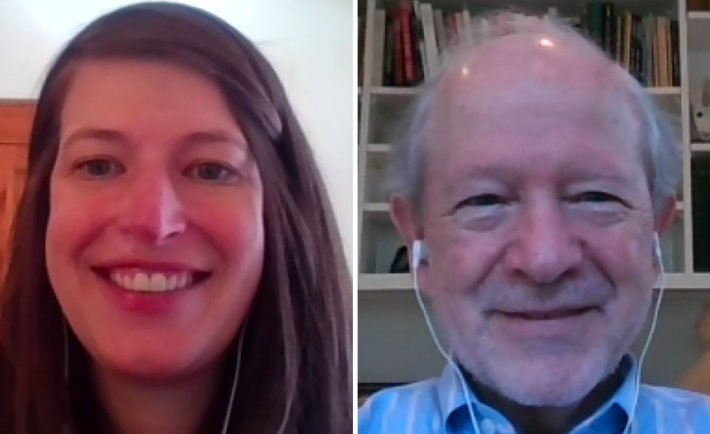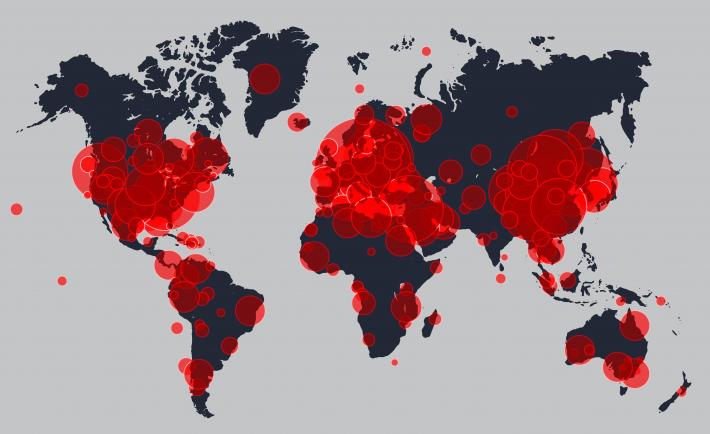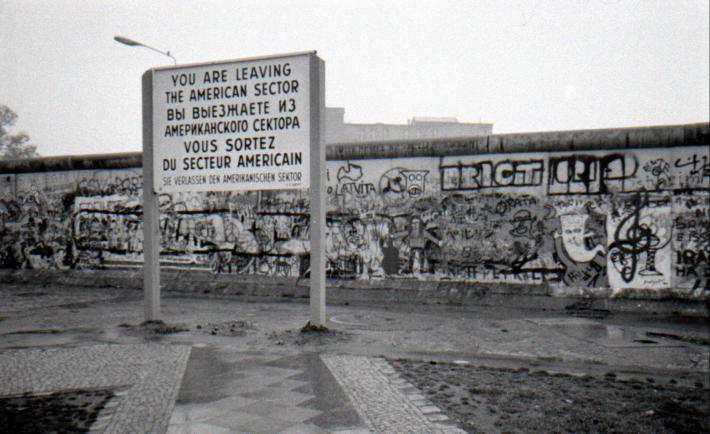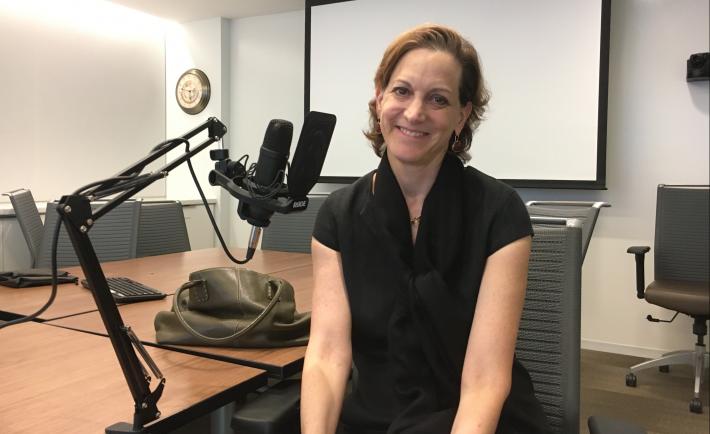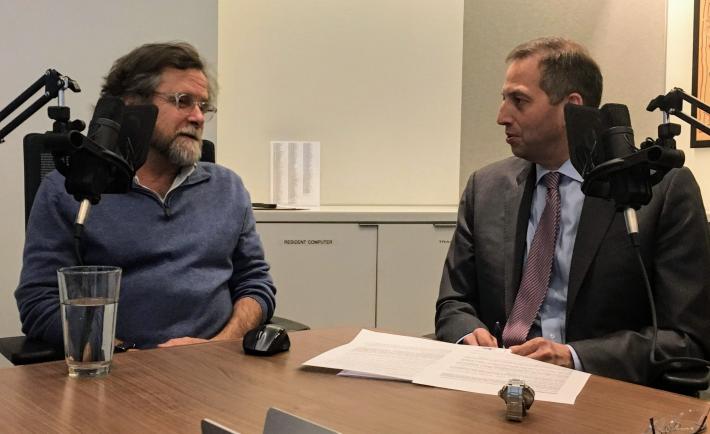Many countries with scheduled elections this year face a difficult choice in the midst of the COVID-19 pandemic: how to balance public health considerations with holding a free and fair election. Learn more from NDI Senior Associate and Director of Electoral Programs Pat Merloe and Program Director Julia Brothers as they talk about democratic back-sliding during this crisis, electoral integrity, and ways civil society organizations can still make a difference.
Demworks: Pat Merloe and Julia Brothers on Elections During COVID
Governance is Key During COVID-19? (w/ Kristen Sample)
As much as COVID-19 is a health and economic crisis, at its core, it is also a governance crisis.
NDI President Derek Mitchell and new Director of Democratic Governance Kristen Sample delve into ways governments and the international community have risen (or not) to meet the challenges of the COVID-19 pandemic.
*Bonus 04* How does an American organization remain separate form the U.S. government?
As DemWorks first year draws to a close, NDI President Derek Mitchell has one final question for his predecessors, Brian Atwood and Ken Wollack. How, as an American organization, has NDI remained separate from the U.S. government, and how has the issue of democracy support evolved over time?
What is NDI's impact on the trajectory of democratic development? (w/ Brian Atwood & Ken Wollack)
NDI President Derek Mitchell continues his conversation with his predecessors, Brian Atwood and Ken Wollack about NDIs history since the fall of the Berlin Wall. In this episode they discuss NDIs impact on the trajectory of democratic development, and where they see the greatest potential for dramatic democratic change.
See something, say something, do something!
Recorded just blocks from the Brandenburg Gate, NDI’s Robert Benjamin continues his discussion with Zuzana Papazoski about the fall of the Berlin wall and its effect on modern society. With so many questions surrounding democracy, are the lessons learned in the 1990’s still relevant?
How has Europe changed since the Iron Curtain lifted?
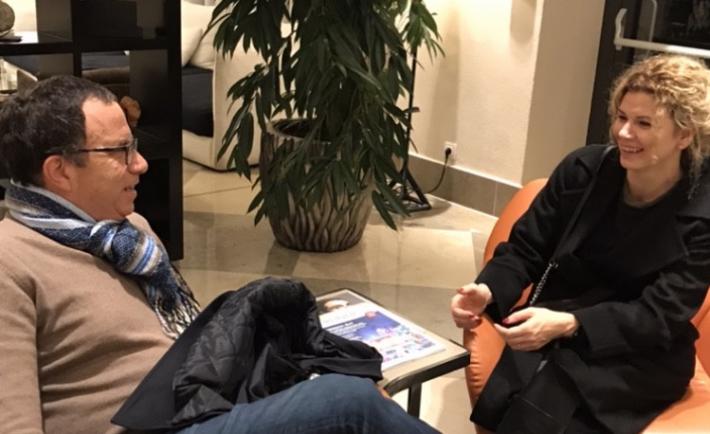
Left to right: Robert Benjamin, Senior Associate and Regional Director for Central and Eastern Europe Programs, and Zuzana Papazoski, Resident Director for Czech Repulic, Slovakia, and Poland
In our second Demworks episode recorded in Berlin, NDI’s director for Central and Eastern Europe, Rob Benjamin talks to Zuzana Papazoski, who currently runs NDI’s programs in Poland, Slovakia, and the Czech Republic. Three decades after the Iron Curtain was lifted, they discuss the dramatic revolutions and democratic change that swept across Europe. How were they driven in great part by young people?
Reflecting on the fall of the Berlin Wall, 30 years on (w/ Brian Atwood & Ken Wollack)
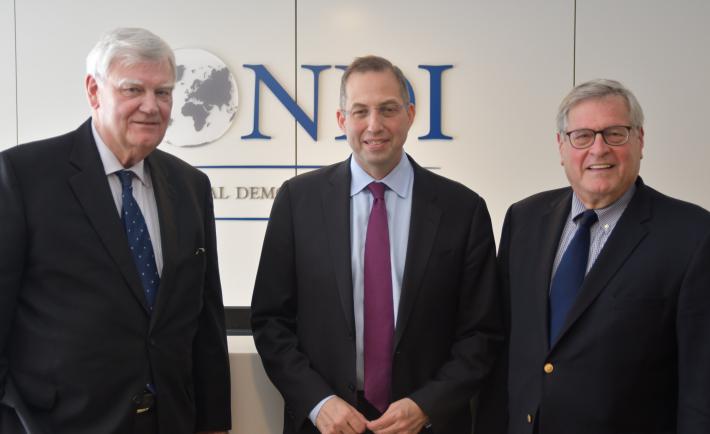
Left to right: Former NDI President Brian Atwood, Current NDI President Derek Mitchell, Former NDI President Kenneth Wollack
In this special episode of Demworks, NDI President Derek Mitchell is joined by his predecessors at NDI, Brian Atwood and Ken Wollack. The three discuss the years before and after November 9, 1989, the day the Berlin Wall fell. Together on this anniversary, they take stock, talking about the evolution of NDI’s work around this period, discussing the specific cases that helped shape the Institute, and reflecting on lessons learned given the state of democracy today.
Demworks Live! Why is political polarization happening now?
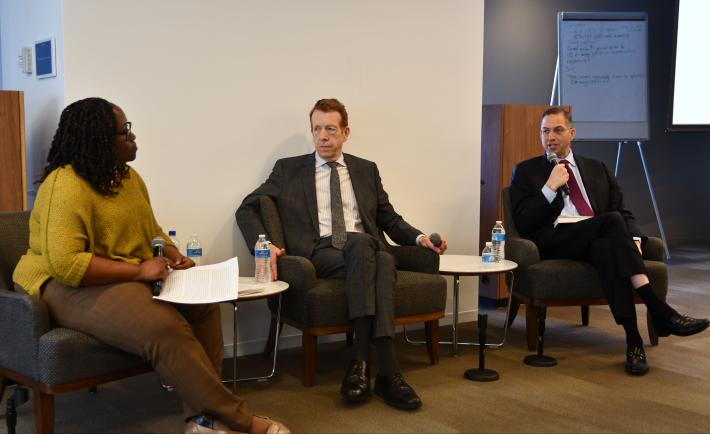
Left to right: Sef Ashiagdor of NDI, Tom Carothers of Carnegie Endowment for International Peace, and NDI President Derek Mitchell.
DemWorks celebrates its 10th episode with a special live installment, discussing the rising threat of political polarization. NDI President Derek Mitchell sits down with renowned global expert on democratization, Tom Carothers of the Carnegie Endowment for International Peace and NDI’s Senior Advisor for political parties, Sef Ashiagdor.
They discuss the points of resilience against severe polarization that exist and the role that political parties play in democracies. Additionally, NDI’s Washington, D.C. staff had the opportunity to ask the panel their own questions on why political polarization is a growing trend for democracies around the world.
Is Democracy in Europe Delivering?
Next month marks the 30th anniversary of the fall of the Berlin Wall. Democracy looked much different in 1989 than it does today. How has democracy changed in Eastern Europe since the bold steps it took in the region three decades ago?
In this Demworks podcast, NDI President Derek Mitchell sits down with Pulitzer-prize winning journalist, analyst, professor, and historian, Anne Applebaum to discuss the current state of democracy in Eastern Europe, and what its future looks like. #Listen to this engaging #podcast as they discuss the importance of citizen participation and political awareness in democracies today.
How does humor help democracy?
In this DemWorks podcast we explore humor, arguably the most democratic form of speech. We talk to Matt Wuerker, the Pulitzer Prize winning editorial cartoonist for Politico, one of the leading news organizations in the United States dedicated to American politics.
Matt’s cartoons pull no punches, skewering Democrats, Republicans and all types of political absurdity. Matt also serves on the board of Cartoonists Rights Network International, an organization that has worked to defend the rights and security of political cartoonists worldwide.

